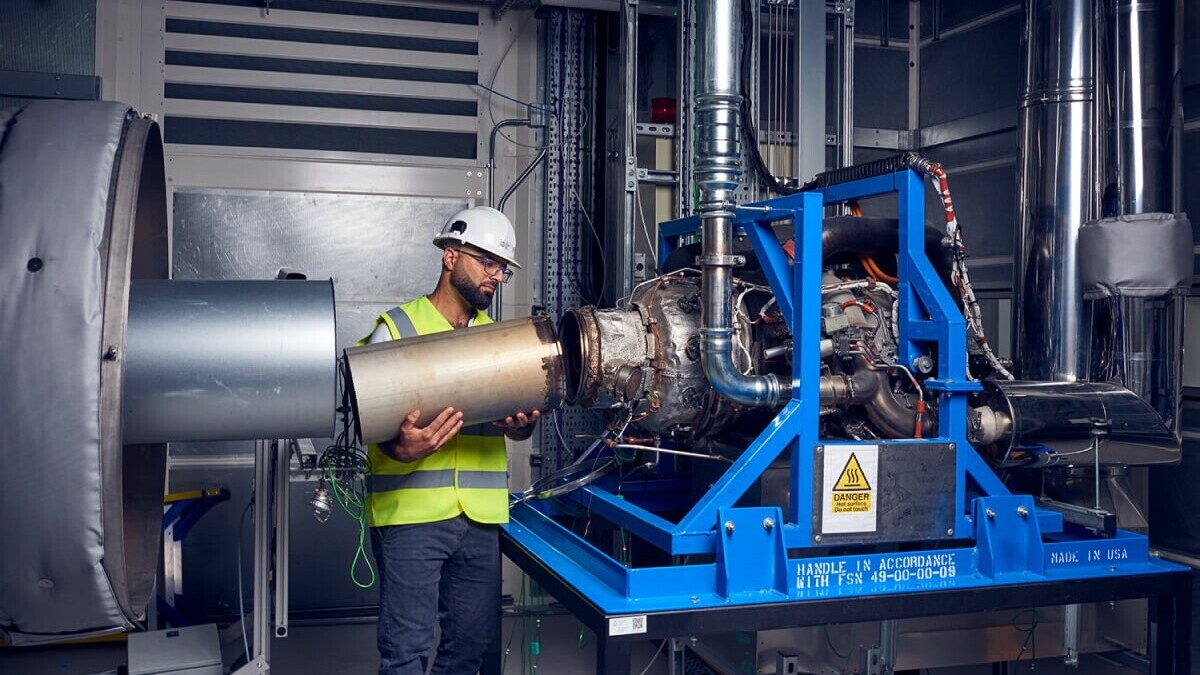
Direct air capture (DAC) features prominently in the climate plans of many world governments, and has drawn billions of dollars in private investment. And yet, as the costs of the technology remain prohibitively high, some doubt whether we can depend on it at all.
Mission Zero Technologies, a startup based out of the UK, believes we can — but by doing things a little differently. It has developed a modular, carbon-sucking machine that it says is cheaper and more efficient than the contraptions currently under development.
The device pulls in air from the atmosphere and passes it over a water-based solvent, which dissolves the CO2 in the liquid. To remove the CO2, the startup then uses a process called electrodialysis, which is similar to the way salt is separated from water during desalination.
Founded in 2020, Mission Zero claims its tech uses three to five times less energy than other DAC methods, which rely on very high temperatures to separate the CO2. Mission Zero uses off-the-shelf components to build its plant, which it says cuts costs even further.
The company’s device is designed to work with intermittent sources of renewable electricity like wind and solar. It automatically ramps up production when there’s plenty of electricity available, and scales down when there isn’t.
Unlike companies like Swiss unicorn Climeworks, which operates its own facilities and then sells carbon credits to companies looking to offset their emissions, Mission Zero sells its plants direct-to-consumer. Its customers could be anyone from a soda manufacturer who needs some bubbles or an airport looking to make sustainable aviation fuels. They could also bury it underground.
“The way we see it, CO2 isn’t just a harmful, planet-warming gas; it’s also humankind’s most versatile building block,” wrote Mission Zero’s CEO Nicolas Chadwick in a blog post. “It can be turned into almost anything you can think of — food, clothes, fuels, chemicals, buildings, even vodka. If we can find a way to efficiently harness the carbon that’s available everywhere in our atmosphere, we can make all of those things out of air.”
The main drive behind the company, said Chadwick, was to scale a solution that could easily integrate into any process or location and meet the urgency of the climate crisis. With the cost of DAC systems still far too high to be cost competitive, Mission Zero’s value proposition is potentially a game changer for an industry struggling to live up to the hype.
Mission Zero currently has three projects in the works. One, with Sheffield University in the UK to produce CO2 for aviation fuel, is already complete. The others are with UK-based OCO Technology to produce building materials from carbon, and with Deep Sky, a DAC project developer in Canada that wants to bury carbon under the Earth.
Today Mission Zero, which is backed by Bill Gates’ Breakthrough Energy Ventures, secured £21.8mn (€25mn) to scale up. It says it wants to remove over a megatonne of CO2 every year by 2030.
Led by London-based VC 2150, Breakthrough Energy Ventures once again joined the funding round, along with World Fund, Fortescue, and Siemens Financial Services.
Get the TNW newsletter
Get the most important tech news in your inbox each week.




